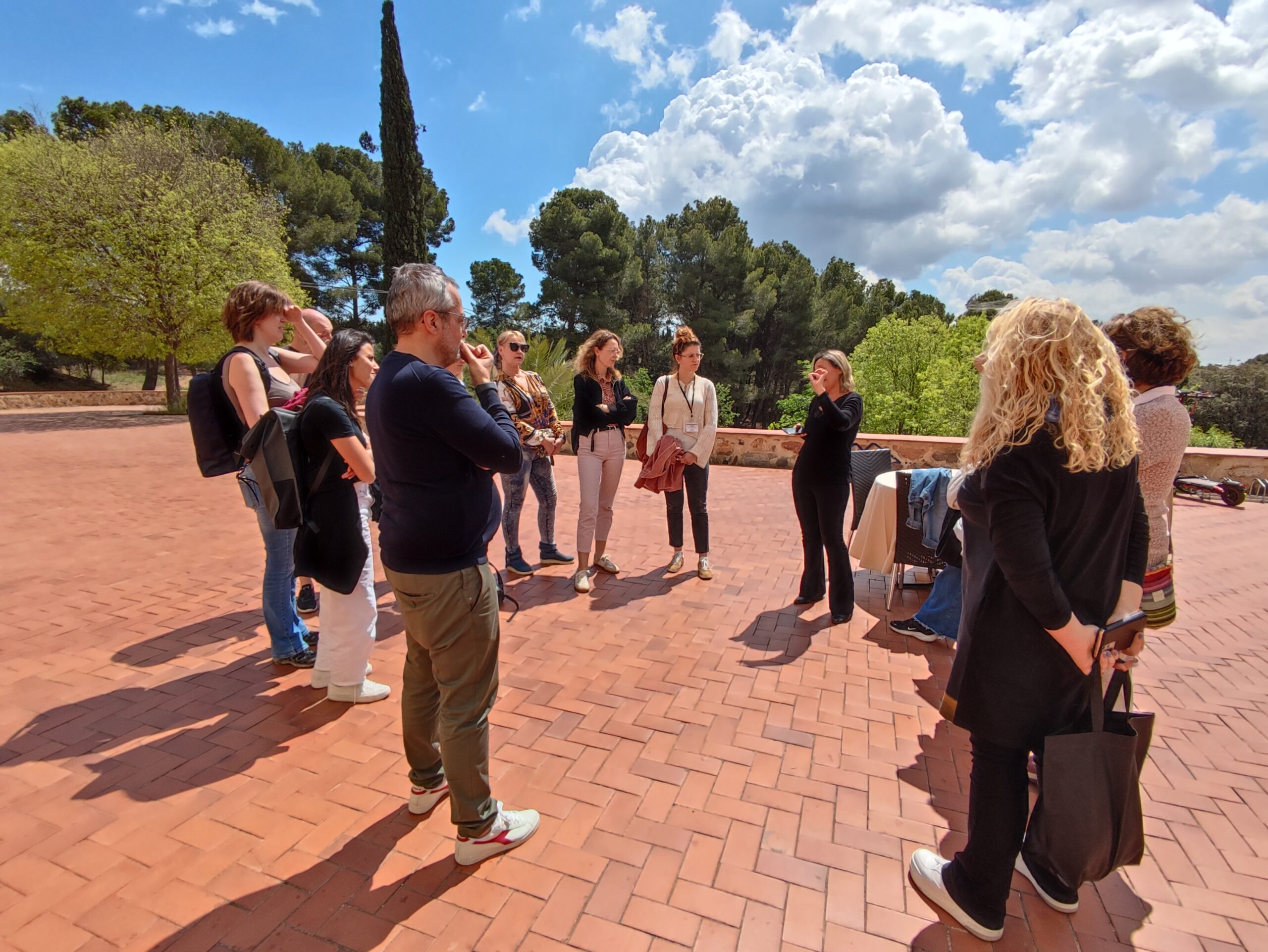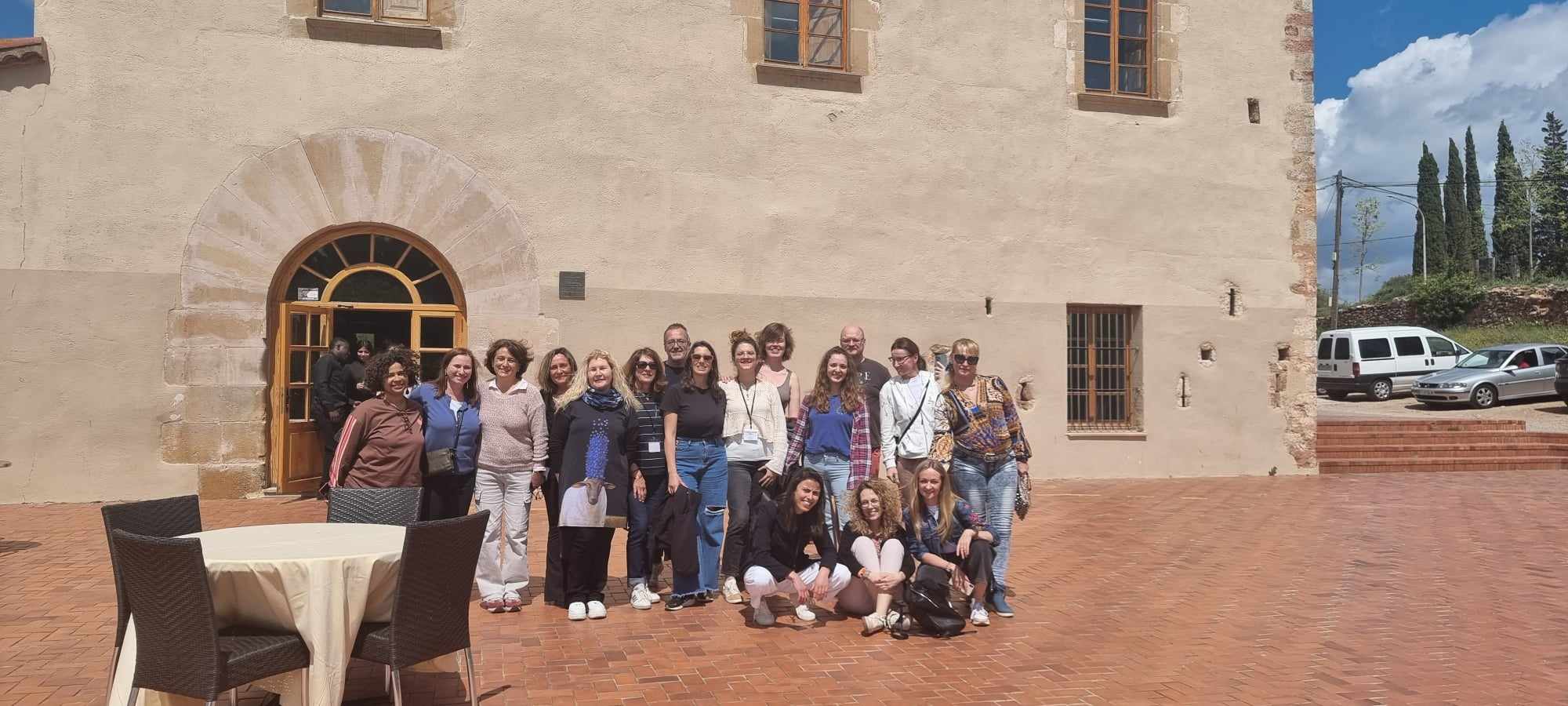Three days of learning at the Mob@Act Training Event in Terrassa
From the 16th to the 18th of April, the Mob@Act Training Event in Terrassa took place. How was it, and what did we learn?
The main aims of the Mob@Act project are to improve the European dimension of general education, and to lay the foundation for shared methodologies related to students’ mobility experiences.
Sounds fancy, but what does it mean? Basically, it means that all the partners involved in this project — four schools [Kaunas International Gymnasium from Lithuania, Liceo A. Righi from Italy, Liceum ETZ Chaim from Poland and our host Institut Cavall Bernat from Spain) and UNISER — are looking for ways to stimulate students to widen their horizon, by spending a part of their education abroad, and/or by being in touch with students from other countries (through online or blended learning experiences).
This training event in Terrassa is part of the larger Mob@Act project, which started back in December 2022 and takes two years, so we are about three-quarters in.
Mob@Act: upskilling school staff
At this point in the life cycle of Mob@Act, it is time to create and finetune the project outcomes. To get results, and to test them. But the meeting in Terrassa is called a “training event” for a reason. It is also the second event of Mob@Act specifically designed to support the exchange of practices among the partners.
It is one thing to have the *motivation* to stimulate your pupils to widen their horizon, but in order to implement Erasmus+ mobility projects at school, teachers also need certain *skills*.
That is why, during the three days in Terrassa, the participants provided each other with workshops regarding all phases and aspects of a mobility project. Project design, choosing a topic, admin and finance, project management, student evaluation, project dissemination, and more.
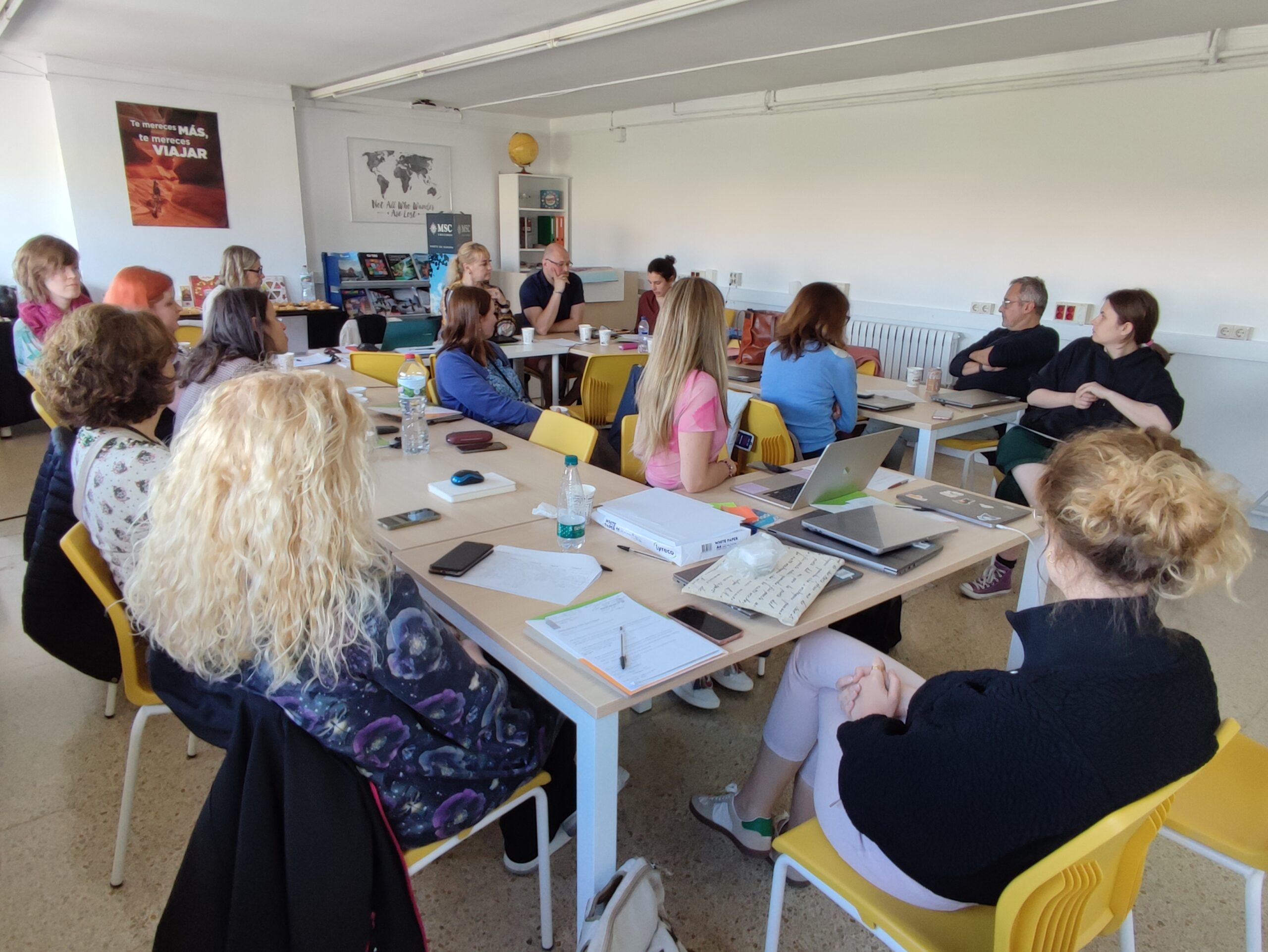
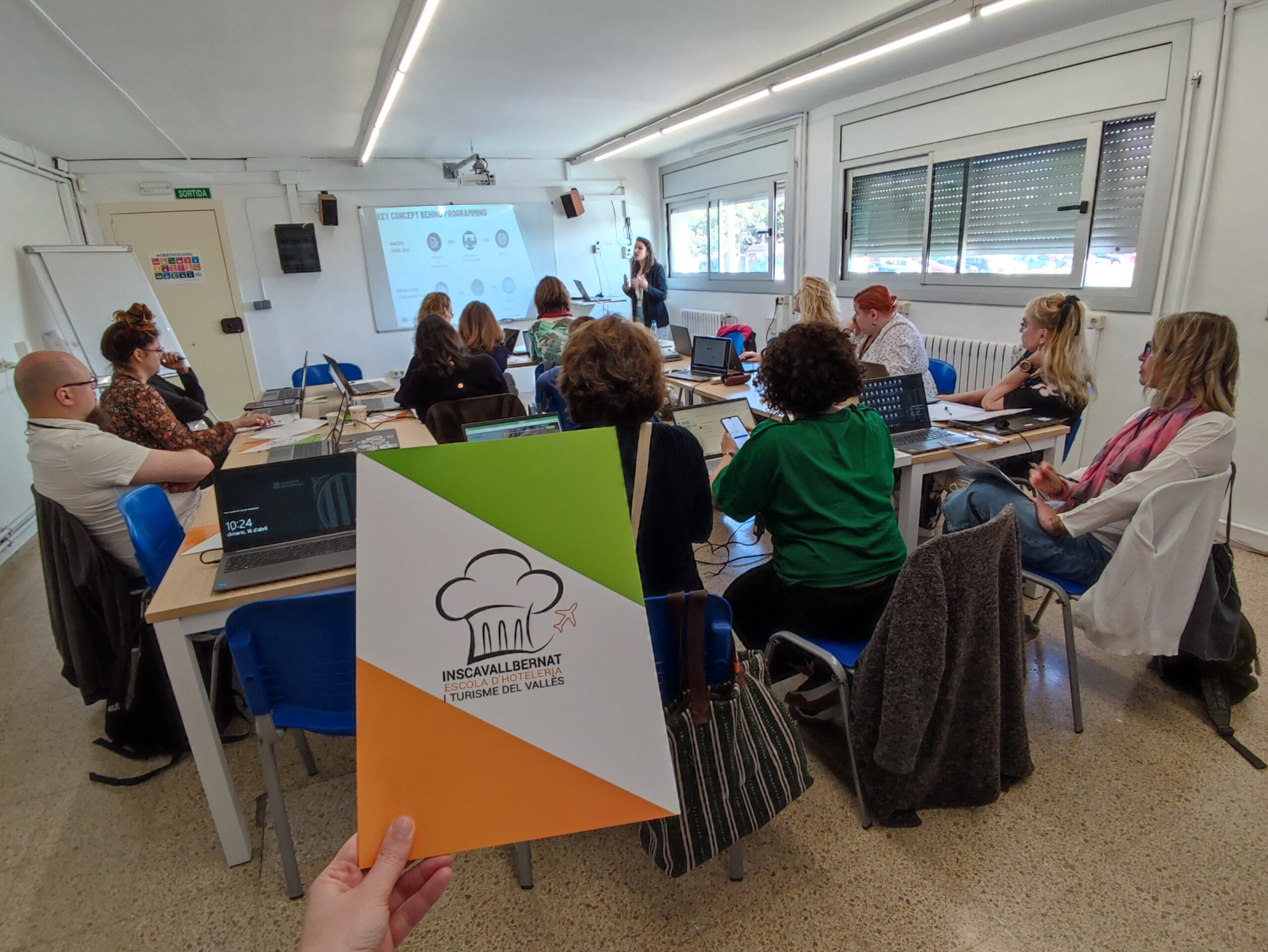
Introducing emerging learning methodologies
When you think of “widening your horizon”, the first thing that probably comes to mind is some kind of physical experience, where you go abroad for a certain period of time. But with the help of modern-day technologies, there is no need to actually move in order to have an international and interactive experience.
That is why, in Terrassa, we spent an entire afternoon sharing ICT tools with each other, and to present and test one of the outcomes of the Mob@Act project in general: an e-learning platform.
This platform allows students to interact with students from other countries, which could improve their communication in a second language, or their intercultural sensitivity, for example. It can be used by students who are about to leave for mobility, and by the ones who are staying at home. This way, both kinds of students will be able to have some kind of international experience.
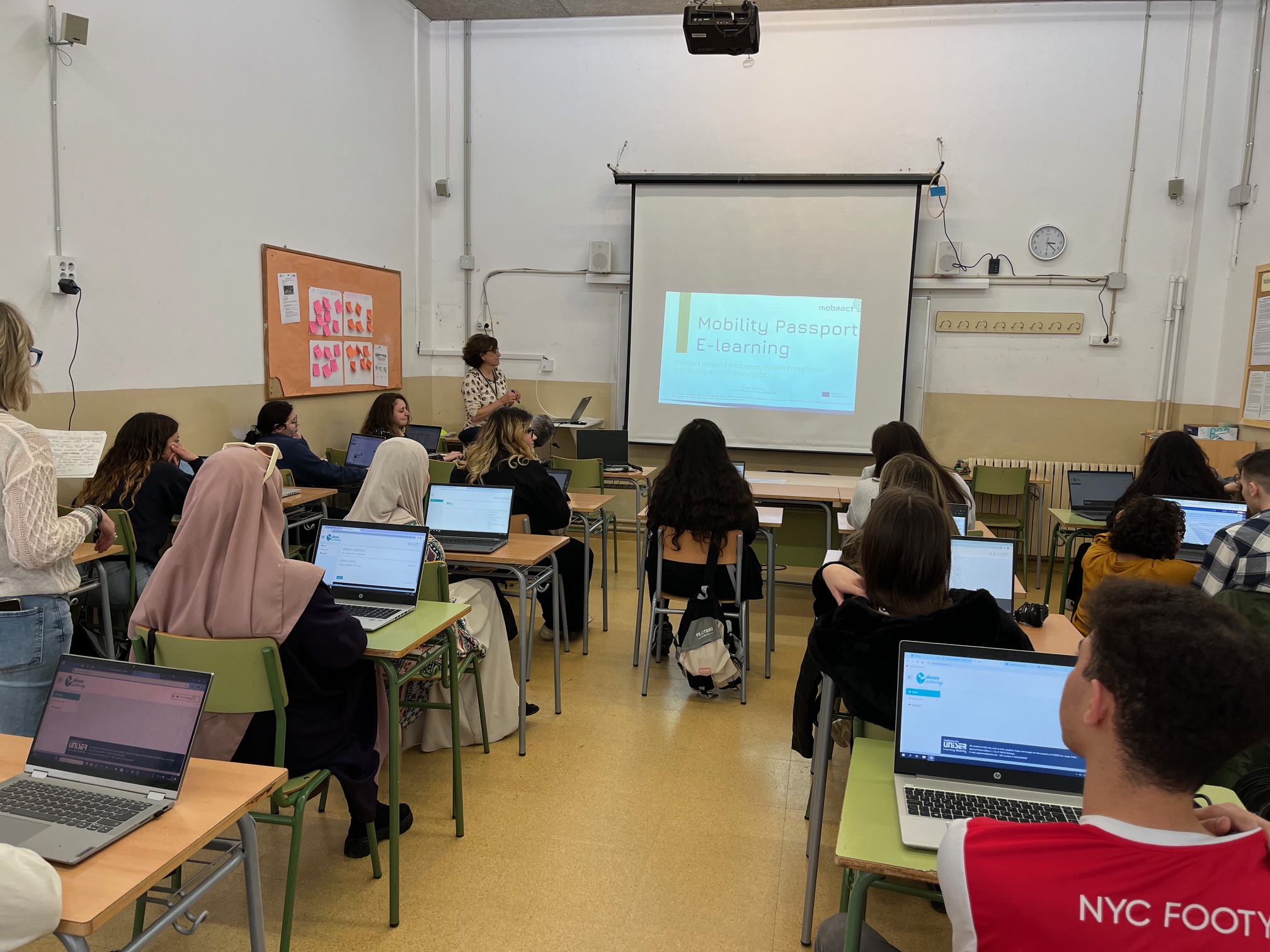
Encouraging (recognition of) mobility experiences
On our last day in Terrassa, we had a delicious 7-course lunch at restaurant-school Torre Mossèn Homs, where students of Institut Cavall Bernat gain experience in working at a restaurant.
When their education is finished, the experience they have gained at the restaurant is validated by an official and widely recognised diploma. In the case of mobility experiences, the recognition of whatever it is the students gained by spending some time abroad (in their minds — like knowledge — but also in their hands — skills, competences — and hearts — confidence, sensitivity, acceptance, …) is far less straightforward.
The impact of mobility projects can be tremendous, but at the same time (and because of it?) the whole idea of “widening your horizon” can be quite intimidating, if not *effing* scary, for young people. (And for older ones too, actually, but here we are talking about mobility projects for students.) That is why it is so important to encourage these kinds of experiences, and to validate them afterwards.
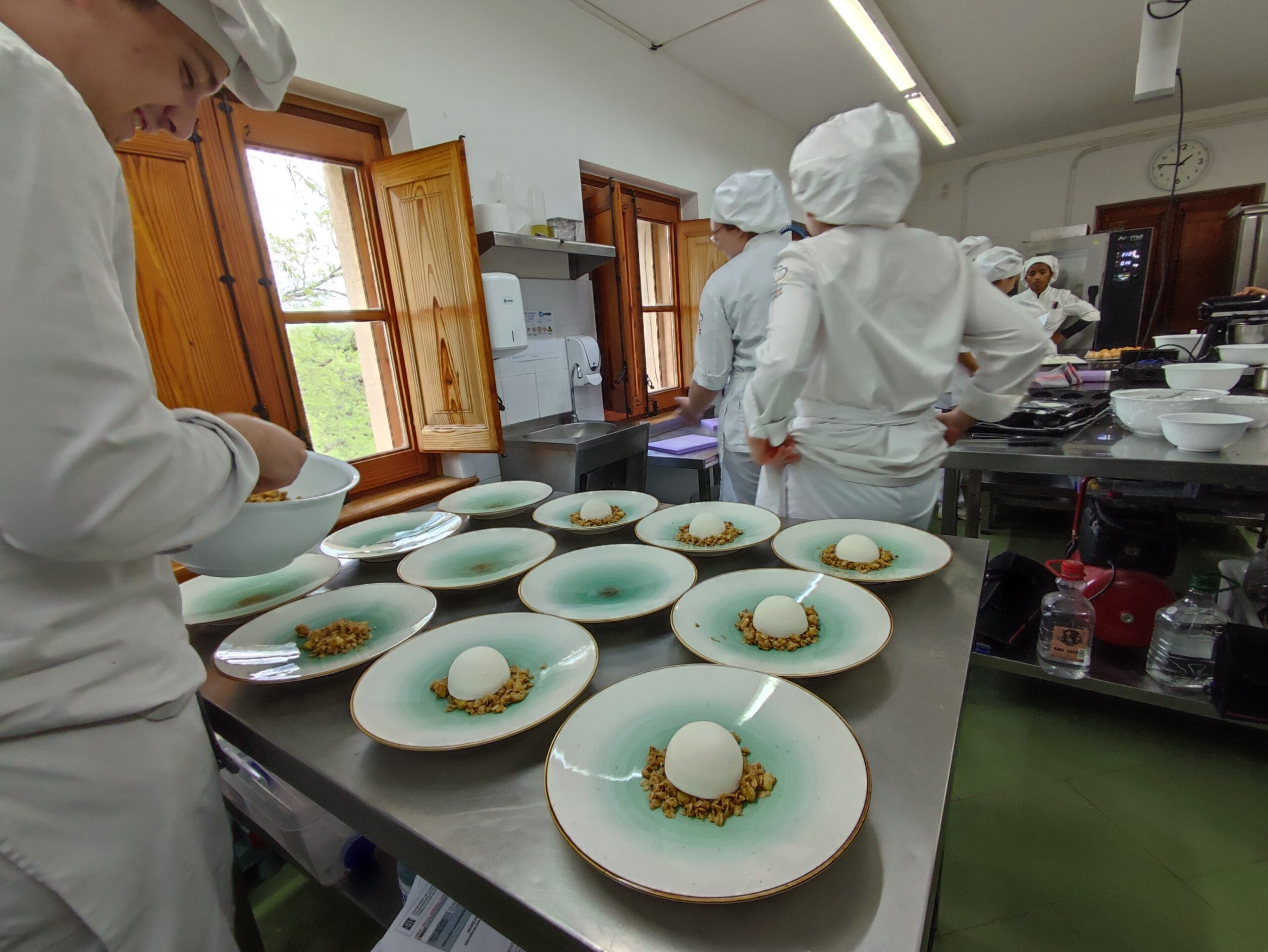
In Terrassa, we talked about different ways to evaluate the impact of mobility projects, either by students themselves and/or as teachers. But we think that simply undergoing an international experience at the same time, connecting with different people from all over Europe, sparks a fire that makes it much easier to encourage others.
After all, there are many ways to learn.
